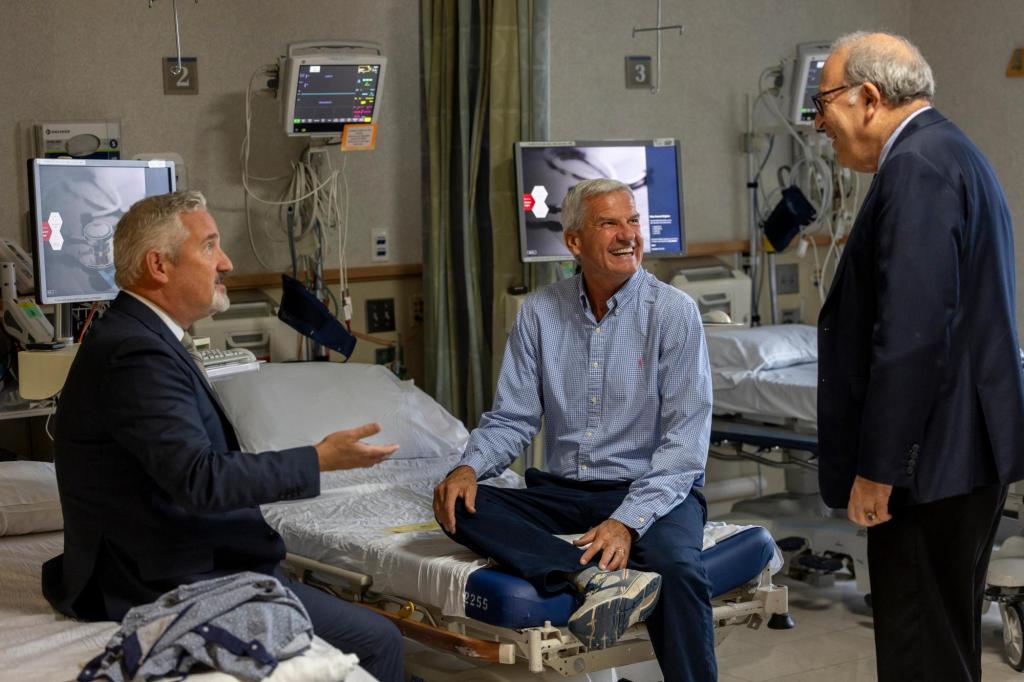By LAURAN NEERGAARD
WASHINGTON (AP) — Nothing doctors prescribed controlled Michael Garrity’s dangerously high blood pressure — until they zapped away some nerves on his kidneys.
If that sounds weird, well, kidneys help regulate blood pressure in part through signals from certain nerves. The new treatment disrupts overactive renal nerves.
“My blood pressure would spike and I’d run out of breath and feel tired, and that doesn’t happen anymore,” said Garrity, 62, of Needham, Massachusetts. He still takes medicine but at lower doses, his blood pressure normal for the first time in years. “I’m thrilled.”
About half of U.S. adults have high blood pressure, a major risk for heart attacks, strokes, kidney failure, even dementia. Many people don’t even realize they have hypertension until it’s done serious damage.
“Know your blood pressure, know the numbers,” stressed Dr. Randy Zusman of Massachusetts General Hospital, who specializes in the hardest-to-treat cases and advises people who think they’re fine to at least get a yearly check.
And only a fraction of patients have their hypertension well-controlled, meaning there’s a need for novel strategies. The Food and Drug Administration approved that “renal denervation” option about a year ago, based on studies showing a modest benefit in patients whose blood pressure remains high despite multiple medicines.
Now, after the American Heart Association recently deemed it promising, some hospitals including Mass General Brigham are cautiously offering it as they work out who are good candidates — and whether their insurance will cover a minimally invasive procedure costing thousands of dollars.
What is high blood pressure?
Two numbers describe blood pressure. The top, “systolic” pressure, is the force blood puts on the walls of arteries as its pumped out of the heart. The bottom “diastolic” number measures that same pressure but between heartbeats.
Normal is less than 120 over 80. Blood…
Read the full article here







